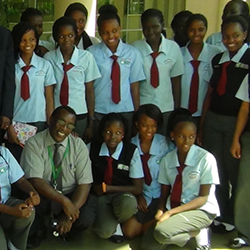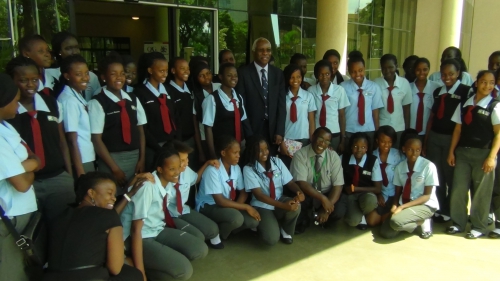Breaking Cycles Of Poverty With STEM
AGLN: Tell us about the importance of STEM (Science, Technology, Engineering, and Math) education.
Patricia Musoke: It’s the excitement of learning new things that science presents. I feel like with a science background you can easily understand a lot of things about how the world operates. It affects every aspect of our lives. It’s the water we drink, the clothes we wear, the food we eat. So it’s an essential element of every aspect of our lives.
From a broader perspective, when you look at the major developments in the world recently...you find that science plays a major role. And for that reason I believe there is quite a variety of opportunities for young people to explore and take advantage of because it’s at the leading edge of presenting solutions to the world. Think about world hunger, think about the problem of electricity all over the world, think about transportation. I see science everywhere, the buildings, in our homes, science plays a major role in everything that we do. With that in mind, when one gains an interest in it, it’s almost like the world becomes a playground. You can pick and choose what you want to play and which game you want to play.
“My Action Pledge is to encourage 200 Ugandan girls to pursue careers in Science, Technology, Engineering, and Math.” - Patricia Musoke
AGLN: Why is it important that you empower girls?
PM: One of the key challenges in Uganda for girls is that they’re stuck in difficult situations. For example, abusive marriages – just because they can’t leave; they don’t have the financial ability to take care of their children. So they sacrifice themselves for the sake of their children and that’s just one example. And for me that is something that really makes me sad, it makes me want to do something. And what can I do? I can encourage girls to try STEM careers, to pursue them because it allows you that independence to pick and choose where you end up in the world.
In order to change the cycles of poverty in a country, in a generation, in a family, you have to reach the girls, you have to empower the girls. Because when you do that, they become mothers and they will empower their children. When girls start getting educated, you see differences in socio-economic statuses of families; you see families having less children, you see families having educated children, you see mothers assuring their children are well-fed. For that reason, when you empower a girl, your chances of impacting generations after her are usually higher. Our nation needs more empowered girls and STEM careers is one way of empowering them.
AGLN: Why is this a personal mission for you?
PM: The AGLN has been this gift that keeps coming back and as a lot of people have said it’s the gift that keeps on giving. You just never know when or where the principles, the values, the discussions come in handy. They ground you, they remind you of the core things that are essential to you. So that was one of the reasons why it was a personal mission for me. I wanted to pick a leadership project that I felt I could make a very meaningful impact with.
We did the first Shine camp last year, and one of the things that the girls told me was that you know, you’ve changed our perspective to of people in STEM careers – you’re young, you dress well, you are good looking. We always see a different picture of women in STEM careers, especially on TV. When you spend time with us, we humanize this STEM career path. There’s a human person that has a life that has successes and challenges, that laughs and plays with us. When we think about someone to emulate, we can put a person to it. For me, that alone is what makes this very personal for the reason that, I think what got me really interested in STEM careers was that I had role models, People who I admired and looked up to who had succeeded in this, and they were women, and I thought ‘Why can I not do it?’
AGLN: How will you know you’ve been successful?
PM: I think the impact or success of Shine for me is two-fold. The first one is getting more girls in STEM careers. That is really the driver, but also changing perceptions about science. So the first part you measure it how many girls are pursuing STEM careers because of Shine.
But the second part, involves the changes in the ways science is being taught, how girls are perceiving science, the changes in the girls’ outlook on the future, as far as their future has evolved and where science features in this future. And I hope to measure these changes in a few ways. One of them is what differences are being implemented in teaching the students because of Shine. So if the school takes up dramatizing science concepts as a part of their culture, that would be a Shine success because that means that they see value and it’s helping the students learn. I’ve got to say it’s very difficult to create tangible measures for something that has both soft and hard skills. So part of the pilot is that as we go, as we learn, as we work more with the girls, we will be able to figure out what measures are actually meaningful for a project like this. It’s not quick impact work, anything to do with changing people’s mindsets cannot yield immediate results. One has to be prepared for a long journey, but the most important thing is that it’s a very rewarding and fulfilling journey.
Other Recent Posts
The final day of the 2019 Resnick Aspen Action Forum closed with a celebration of intergenerational perspectives that included presentations from young leaders and a discussion between AGLN Moderator and South African Fellow Heather Sonn and Keith Berwick, long-time friend and founding executive director of the Henry Crown Fellowship. ...
When Anousheh Ansari was seven years old, she drew a photo of a rocket flying through space and set her eyes on exploring outer space being astronaut. There was no space program in Iran at the time and the chances of Ansari becoming an astronaut were slim. “I like to prove people wrong,” said Anousheh Ansari on stage at the 2019 Resnick Aspen Action Forum. On ...
The 2019 John P. McNulty Prize laureates, five extraordinary individuals, shared their courageous and bold social impact ventures at the Resnick Aspen Action Forum on Wednesday night. McNulty Foundation President Anne Welsh McNulty, who founded the award in honor of her late husband, described the McNulty Prize as a call to action. “You have shown ...
Borders are a part of life –– whether internal, invisible, geo-political or otherwise. Borders can help and they can harm. Borders are powerful and they can also be a form of power. Understanding the borders that are around and within us can lead to greater self-awareness and open the path for making great change in the world. With inspiration from the ...
1. Draw inspiration from other participants Over 1,000 Action Pledges have been made since the inaugural Action Forum in 2013. Watch the video below on some highlighted Action Pledges. 2. Find your sweet spot The most exciting Action Pledges come from what we call your sweet spot, the intersection of your passions, talents, and your community’s ...



Leave a Comment